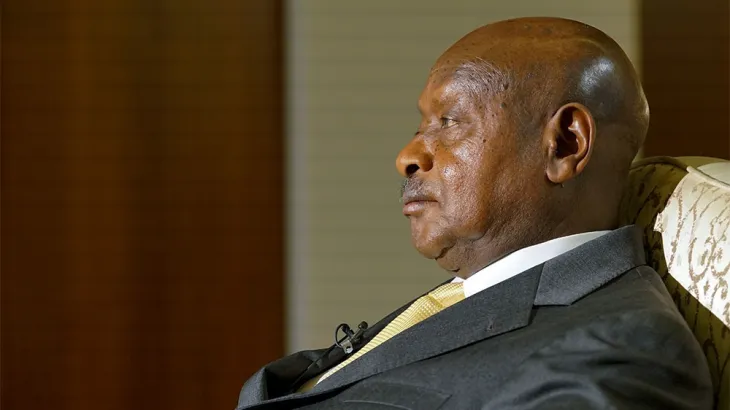plowunited.net – Uganda has reportedly reached a deal with the US to accept deportees from third countries who may not receive asylum but refuse to return to their home countries. According to Uganda’s foreign ministry, the arrangement excludes individuals with criminal records and unaccompanied minors. Details on compensation or the number of deportees to be accepted remain undisclosed.
Read More : Trump’s Impact Seen as India-China Relations Improve
Bagiire Vincent Waiswa, Uganda’s foreign ministry permanent secretary, emphasized a preference for deportees from African countries. Both governments are still finalizing how the agreement will be implemented. Uganda joins a list of countries cooperating with the US. Which aims to expel millions of undocumented migrants, asylum seekers, and foreigners with minor legal infractions or criminal records.
Recent US deportations demonstrate the program’s global reach. In July, authorities sent five migrants convicted of serious crimes to Eswatini, where officials detained them in a high-security prison. Regional NGOs have challenged these deportations in court. Also in July, officials deported eight men to South Sudan after holding them for weeks in harsh conditions in Djibouti. Additionally, authorities repatriated more than 250 Venezuelans following their controversial detention in an El Salvador prison.
Rwanda has similarly agreed to take 250 deportees from the US. Rwandan officials promise to provide workforce training, healthcare, and accommodation to help these individuals restart their lives.
While Uganda remains a close US ally, President Yoweri Museveni has governed the country for nearly four decades amid ongoing political repression concerns. Authorities often imprison opposition figures. Despite this, Uganda hosts almost two million refugees and asylum seekers. Mostly from neighboring countries such as the Democratic Republic of Congo, Ethiopia, Eritrea, and Sudan.
On Wednesday, a Ugandan official denied the existence of a formal deal. Citing a lack of facilities and infrastructure to accommodate deportees. This denial followed a CBS News report citing internal documents that suggested deportation agreements between the US, Honduras, and Uganda.
Uganda’s Role in Regional Migration and Political Concerns
Godwin Toko, deputy executive director of the Ugandan think tank Agora. Described Uganda’s potential cooperation with the US as a way to gain leverage despite limited economic or military power. He said Uganda could play the role of a cooperative partner to the US for strategic benefits.
Uganda has a history of accepting deported migrants. Between 2015 and 2018, Israel sent about 1,700 Sudanese and Eritrean asylum seekers to Uganda. The country is widely known for its welcoming attitude toward refugees and asylum seekers.
However, Toko warned of Uganda’s poor track record in protecting politically sensitive individuals. He expressed concern that Uganda might hand over dissidents from countries with friendly ties to Uganda. Such as Kenya or South Sudan. This raises fears about the safety of political refugees deported under the new US agreement.
Uganda’s willingness to accept deportees from the US adds a complex dimension to regional migration issues. While the country provides refuge to millions fleeing conflict. Questions remain about the political safety of those deported under this arrangement.
Read More : Nvidia Expands Project G-Assist with New Features
Moving forward, transparency about the deal’s implementation, the treatment of deportees, and Uganda’s safeguards will be essential. Regional and international human rights groups will likely continue to monitor Uganda’s role closely. Especially given its dual reputation as a refugee host and a politically repressive state.
In summary, Uganda’s emerging partnership with the US on deportations reflects broader geopolitical and migration challenges. How this will affect Uganda’s domestic politics, refugee policies, and international relations remains to be seen.


